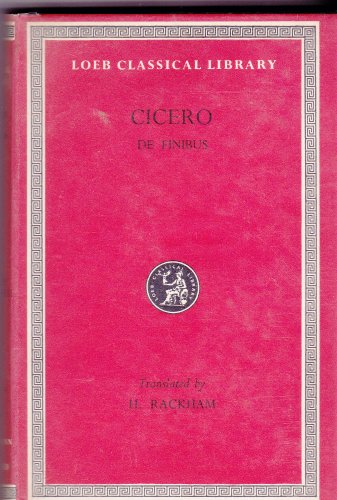 De Finibus by Marcus Tullius Cicero, translated by Harris Rackham, 251 pages
De Finibus by Marcus Tullius Cicero, translated by Harris Rackham, 251 pages
De Finibus is a set of dialogues "on the ends" of human life, on the goods that give meaning and purpose. It is explicitly not an original investigation, but rather a survey of the three primary schools of the first century BC - the Epicurean, Stoic, and Peripatetic - intended to serve as a primer for Romans unfamiliar with Greek language and thought. So successful was this project that Tully's vocabulary became standard Latin and continues to influence the thought of the West, though doubtlessly less than it should.
The three schools considered are in agreement that the end of life is happiness. Where they disagree is their definitions of happiness, and specifically the relationship - or lack thereof - between material well-being and moral virtue. Quickly dispensing with the Epicurean view that the two are identical, the chief issue then becomes whether material goods can rightly be considered goods at all. Tully's conclusion - that the disagreement between the Stoics and Peripatetics is more about words than substance - seems convincing, but the nagging fact remains that he does not even attempt to explain why insignificant material goods ought to be properly classed as goods at all.
No comments:
Post a Comment